So I am very unexperienced with Python, I know basically nothing, and our teacher gave us the task to write a code that makes a partial fraction decomposition with this function:

I don't really know how to start or even how to define that function. I tried this at first: `
def function(x):
a = (x^4)-(3*x^2)+x+5
b = (x^11)-(3*x^10)-(x^9)+(7*x^8)-(9*x^7)+(23*x^6)-(11*x^5)-(3*x^4)-(4*x^3)-(32*x^2)-16
return a/b
But our maths script says that we need to split up the denominator and then make a system of equations out of it and solve it.
 So I was thinking about defining each part of the function itself and then make a function somehow like a = 7*x and use it like f(x) = b/a^7 if this works but I don't really know. We are unfortunately not allowed to use "apart" which I think is a sympy-function?
So I was thinking about defining each part of the function itself and then make a function somehow like a = 7*x and use it like f(x) = b/a^7 if this works but I don't really know. We are unfortunately not allowed to use "apart" which I think is a sympy-function?
Thank you so much in advance!
Sincerely, Phie
Addition: So after a few hours of trying I figured this. But I am very sure that this is not the way to do it. Also it tells me that variable l is not defined in z and I am sure that all the others aren't as well. I don't know what to do.
def function(x):
global a,b,c,d,e,f,g,h,i,j,k,l,m,n,o,p,q,r,s,t,u,v
a = (x^4)-(3*x^2)+x+5
b = 11
c = 10
d = 9
e = 8
f = 7
g = 6
h = 5
i = 4
j = 3
k = 2
l = x**b
m = 3*x**c
n = x**d
o = 7*x**e
p = 9*x**f
q = 23*x**g
r = 11*x**h
s = 3*x**i
t = 4*x**j
u = 32*x**k
v = 16
return a/(l-m-n+o-p+q-r-s-t-u-v)
print("We are starting the partial fraction decomposition with this
function: (x^4)-(3*x^2)+x+5 / (x^11)-(3*x^10)-(x^9)+(7*x^8)-(9*x^7)+
(23*x^6)-(11*x^5)-(3*x^4)-(4*x^3)-(32*x^2)-16")
z = l-m-n+o-p+q-r-s-t-u-v
while c >= 0:
c = c-1
z = z-l
while d >= 0:
d = d-1
z = z-m
while e >= 0:
e = e-1
z = z-n
while f >= 0:
f = f-1
z = z+o
while g >= 0:
g = g-1
z = z-p
while h >= 0:
h = h-1
z = z+q
while i >= 0:
i = i-1
z = z-r
while j >= 0:
j = j-1
z = z-s
while k >= 0:
k = k-1
z = z-t
print(z)